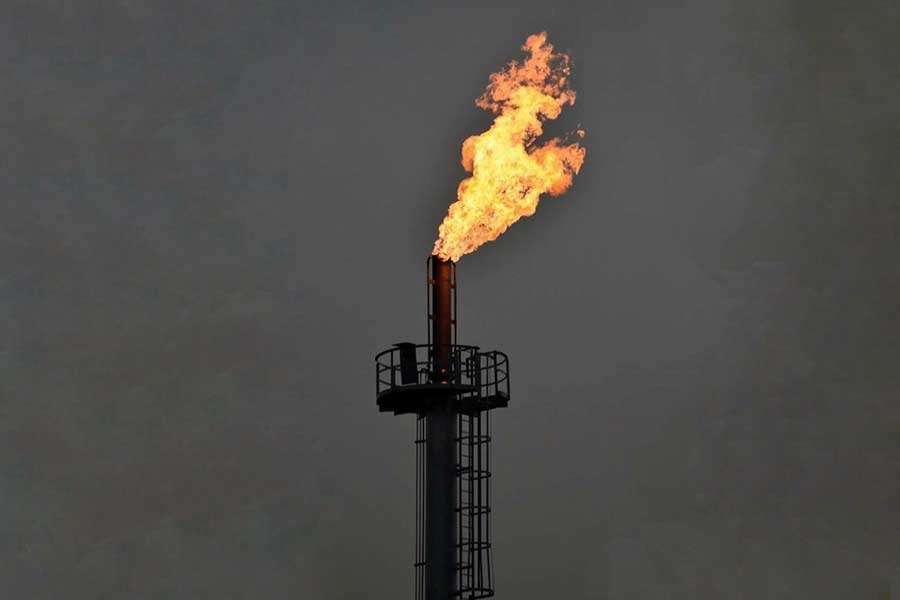It's deemed imperative to restart the exploration for new gas reserves and overhaul the existing wells to increase domestic production and reduce dependence on costly liquefied natural gas (LNG) imports. The urgency is felt especially as fuel prices are fuelled up amid the pandemic disruptions and the Ukraine war close on its heels.
Experts think that the country's existing gas reserves would be barely enough to meet the needs for 10 years at the most. So they call for finding new reserves to reduce dependence on costly imports.
Clearly, Bangladesh is facing a gas crisis for neglecting exploration for new reserves over the years. But why the authorities neglected the exploration for new reserves is far from being clear.
There is no justification at all for a country with high hydrocarbon potential to neglect the exploration and rely on costly imports of LNG to meet the nation's growing energy demand. The policy, or a lack of it, deserves a serious review. It can in no way be commended.
The experts believe that by exploring the country's gas reserves, onshore and offshore, Bangladesh might cut imports and make its economy more productive and production-competitive for domestic consumers as well as for export. Why then the authorities should be sitting idle?
Available reports provide a disturbing picture about most of the country's 28 gas fields producing less gas than before, thus creating a crisis that led to increasing the import of costly liquefied natural gas. The crisis is bound to intensify unless corrective steps are taken without further delay to explore news reserves.
The energy experts also pointed out time and again that the falling capacity of gas fields or wells could be reversed by overhauling the wells, which has not been done. They, therefore, suggested that exploration must begin without further delay.
Import of LNG, which is 24 times costlier than the domestic gas production, could be a temporary, not a durable, solution to the crisis. Obviously, thereis a need for a well-defined energy policy in keeping with the future needs.
There is no clear policy now, it seems, except for increasing the dependence on imports only to benefit the importers. The uncertainties caused by the existing shortages arose due to the government not implementing the recommendations of the 2011 Report of the Consultancy Services for Gas Production Augmentation which called for overhauling the wells, adopting a systematic and risk-shooting approach to best utilisation of resources, and carrying out exploration in the coastal belt and the hill districts.
Why the authorities did opt for taking the easy but costly path of importing LNG is best known to them. But it only exacerbated the problem instead of solving it while costing the nation dearly.
In last two decades only 28 exploratory wells were drilled in Bangladesh though gas was found in one out of three wells drilled -- better than the global average of one in five. It was unwise to keep the potential unexplored.
Offshore gas exploration is still a non-starter in Bangladesh. The authorities need to wake up to the nation's growing energy needs. Hollow slogans cannot help the government achieve its lofty development goals and its vision for the decades ahead.
The authorities should get down to exploring new reserves and overhaul the abandoned gas wells. Giving up the dependence on LNG imports ought to be a high priority now.


